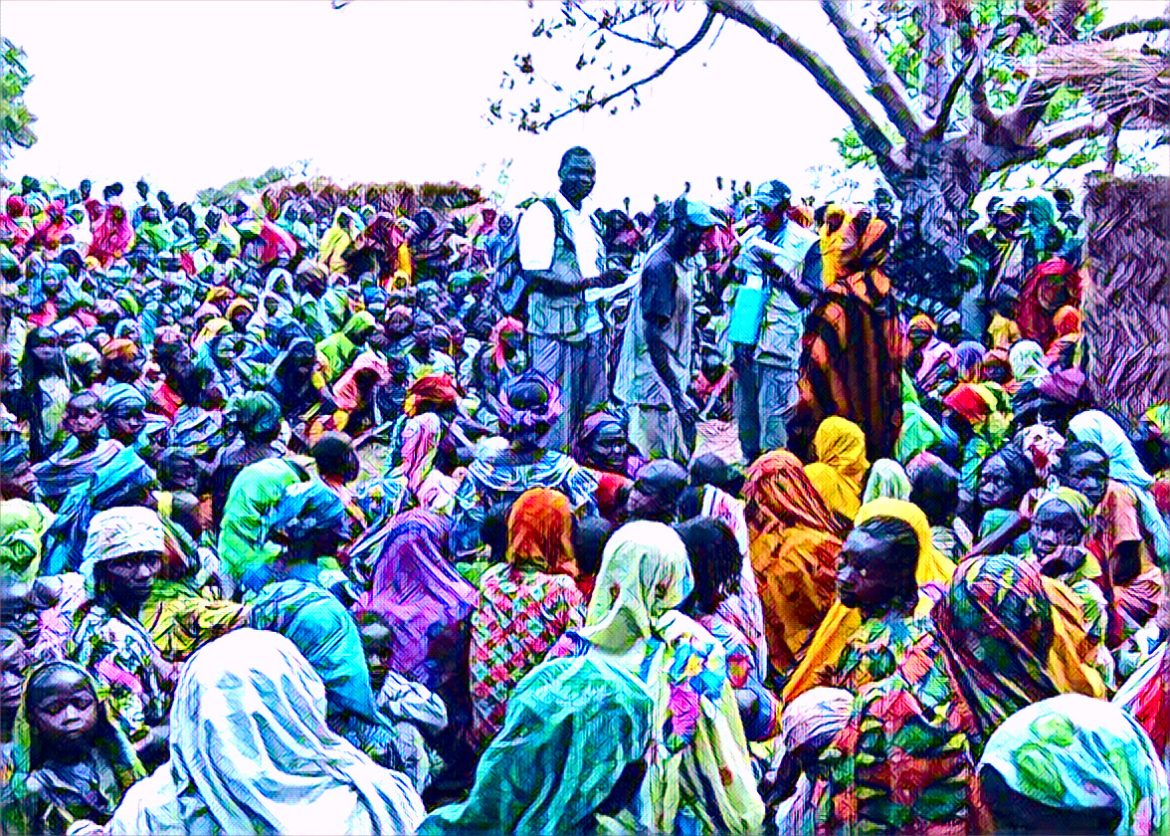In Maiduguri, the capital city of Borno State, the living conditions in the Internally Displaced Persons (IDP) camps are still dire even after 14 years since the insurgency began. Despite the efforts made by the Borno State government and various NGOs to improve living standards, many survivors of terrorist attacks are still struggling to cope with inadequate shelter, scarcity of food, and lack of essential healthcare.
The camps, housing thousands of displaced persons, suffer from overcrowding and substandard living conditions. Most residents are accommodated in makeshift shelters made from materials like wooden sticks and ripped fabric, which offer little protection against the elements and no privacy. The risk of disease is high in these camps, with concerns about malaria, diarrhea, and typhoid becoming more pronounced as the rainy season approaches. Although the Nigerian military provides round-the-clock security, the health risks are still largely unmitigated.
Hajia Fatima Abdullahi, a resident of one of the camps, shared a harrowing account of her experiences since the Boko Haram invasion of her community. She lost over 100 friends and relatives and still has family members held captive by terrorists. Her recount of the day she fled her village nearly naked underscores the acute vulnerability and ongoing trauma faced by many IDP camp residents.
The food supply in the camps is critically low. Although the government has made efforts, including the provision of some infrastructure like mosques and electricity, the absence of sufficient food and medical care is palpable. Abdullahi highlighted the lack of a clinic to address even basic health concerns of the children in the camps.
The situation reached a poignant moment during a recent visit by journalists to the camp. A small donation by the reporters brought visible joy to the women’s faces, underscoring the desperate conditions under which they live. The scarcity of essentials like food and medicine casts a long shadow over the daily lives of the IDPs.
Outside the camps, the security situation remains precarious. The region still faces attacks from insurgents, with frequent security incidents reminding the residents and the security forces of the ongoing conflict. The military continues to engage in both kinetic and non-kinetic operations to secure the area and assist the IDPs.
In response to these conditions, several NGOs and government initiatives are focusing on improving the living conditions within the camps. Projects aimed at building more durable shelters, providing better healthcare facilities, and ensuring adequate food supply are underway. However, the scale of the crisis outstrips the current level of response, and more comprehensive action is needed.
Training programs for IDPs, especially women, in skills such as soap making have been introduced to help them become self-reliant. Furthermore, efforts to provide education for children in the camps are critical in ensuring that the cycle of poverty and displacement does not continue.
Despite these efforts, the future for many IDPs remains uncertain. The need for a coordinated and sustained international response to improve the living conditions in the camps is urgent. As the Borno State government and its partners continue to work towards alleviating the suffering of IDPs, the resilience and enduring spirit of the camp residents are tested daily.
The situation of Internally Displaced Persons (IDPs) in Northeast Nigeria is a stark reminder of the long-lasting effects of conflict and the urgent need for sustained humanitarian assistance and development interventions. The international community is closely monitoring the situation with the hope that these displaced persons can soon return to their homes and live in peace and security. However, until then, the struggle for survival and dignity continues for those living in the IDP camps of Borno State.
Source: The Guardian


